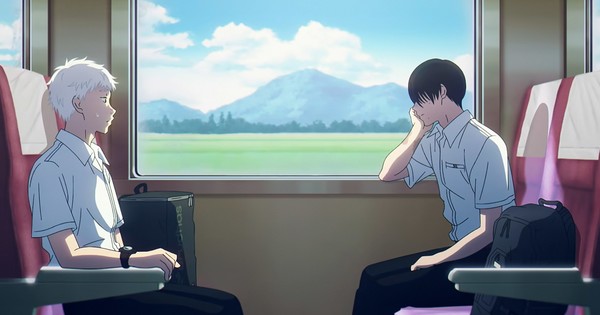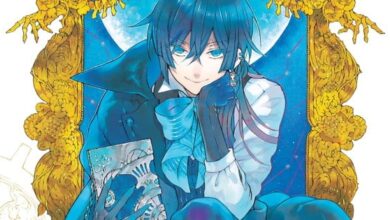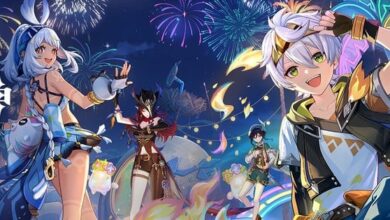Episode 7 – The Summer Hikaru Died

©Mokumokuren/kadokawa/Summer hikaru dies
hikaru died in summer Good at its subtleties. Yoshiki and Hikaru have no external bad performance when playing Heady, but we feel the inevitable and inevitable abilities are the same in them. Interestingly, once I caught Yoshiki’s intentions, my brain compared their journey to the way people might take their dog to do all his favorite things before letting him go. This is not the first time Yoshiki compares Hikaru to unruly pets.
Yoshiki believes that he must assume all responsibility for Hikaru’s misconduct. Despite Hikaru’s agent, age and inhuman facts, his chronic self-loathing does not allow anything else. Although Hikaru may have turned into a defense last week, he finally regretted that the cause had almost killed Asako. We can confirm that he openly seeks Yoshiki’s forgiveness this week. However, Yoshiki proposes conclusions and solutions to catastrophic proportions. This suits his character.
Yoshiki hopes Hikaru kills him. He called his mom and sister to say goodbye and then took Hikaru to his room, so he expected himself to fail. In this case, he stabbed Hikaru as an indirect means to stab himself. Society kept telling him that he was a sinner who continued to mix with the creature, and he feared that he had been marked like a bruise on his wrist. This is another layer of metaphor on the show’s metaphor for homophobia, and Yoshiki continues to internalize it. He thinks he or Hikaru should not exist.
However, human society does not weigh Hikaru like Yoshiki. When Yoshiki stabs him, he looks at this with a simple attitude: his friend is trying to hurt him, which means his friend is hurting him. This is not to say that Hikaru has a singles mind. In the vortex of emotions, he expresses one of the deeper motivations behind his obsession with Yoshiki. He showed a part of a friend to fulfill Hikaru’s dying desire, but the obsession he had on Yoshiki went beyond the original instructions. This feeling proves that he is more than just Hikaru Doppelganger. If he can love others spontaneously, it means he must have his own soul and his own desires. On the contrary, if his relationship with Yoshiki collapses, it means Hikaru has nothing. He is just another shadow that haunts the mountains.
Ultimately, Hikaru’s need and Yoshiki’s self-loathing are combined with the climax of the episode, where Hikaru takes away part of himself and gives it to Yoshiki. It’s a huge and inner moment, using horrible visual language to tell the truth in these boys’ hearts. It’s not entirely subtle, either, you can say that this contradicts my opening sentence. However, I think this gesture contains surprising nuances in how you read. You can interpret this as an unhealthy interdependence, whereas both Hikaru and Yoshiki are now completely dependent on the other. By contrast, the narrative may argue that all healthy relationships need to sacrifice each other – we all have to do our best and share our “fruits of destiny” penguin the term. Or you might just like poisonous bl resonance. I don’t think there is a “wrong” way to go here. If anything, then the lack of certainty would be their relationship as vectors of complex themes and dramas. The real relationship is Byzantine merger and endless work.
A neat detail – shouting Theozilla on the blues To point this to me, it is the identity of the bones that Hikaru tore off his chest. This is the end of the sternum, called the Xiphoid process. The kicker is “Xiphoid” in Greek means “sword-like” (referring to the sharp shape), thus adding edges to hikaru’s plea gesture (literally). He disarmed himself. In other words, he is returning to Yoshiki’s kitchen knife’s “grace” but as a gesture of peace, he reaches him, not the blade. I like how dull (literally). Furthermore, this means that I can use the scenario with Utena beside penguinso I am my element.
Elsewhere, life in the school has always been in normal condition and we finally paid off for all the choir practices highlighted in my previous comments. These school scenes generally enhance the village’s sense of normality, without the lack of Yoshiki and Hikaru calling this aspect. This shows that the ensemble ends up fusing together only when both boys are present. Hikaru does not belong, and the village does not want him there, because the elders seek external help to drive him away. However, Yoshiki performed well in a different but similar way, sharing Hikaru’s fate. He couldn’t survive there. It’s also a two-way street, as we hear him and Hikaru sing the same songs as the beautiful (if troublesome) duet of the final credits. In a short moment, everything and everyone are in the right place.
Adaptations also spread throughout the choir. This is the calm before the storm, but it will also be premonitioned for it. I especially like showing us the humorous attitude of Yoshiki’s father as he shares a gentle father-son moment rather than being with Yoshiki. He did tell his colleagues about his son, but it was hard to know whether he acknowledged the usual difficulties of raising a teenager or whether he knew Yoshiki was “different”.
Finally, a collage of frightening images takes Yoshiki’s vow to figure out what Hikaru is. Even though they reconcile, hikaru died in summer Knowing this is not or is not easygoing romance. Yoshiki now has blood on his hands, and Hikaru’s past may have unearthed the same river. If we look at it in another way, by teaching hikaru to be more human, Yoshiki may intentionally or not become more like Hikaru.
grade:
hikaru died in summer Currently flowing
Netflix.
Disclosure: Kadokawa World Entertainment (KWE), a wholly owned subsidiary of Kadokawa Corporation, is the majority owner of Anime News Network, LLC. One of the companies mentioned in this article is part of the Kadokawa Group.




